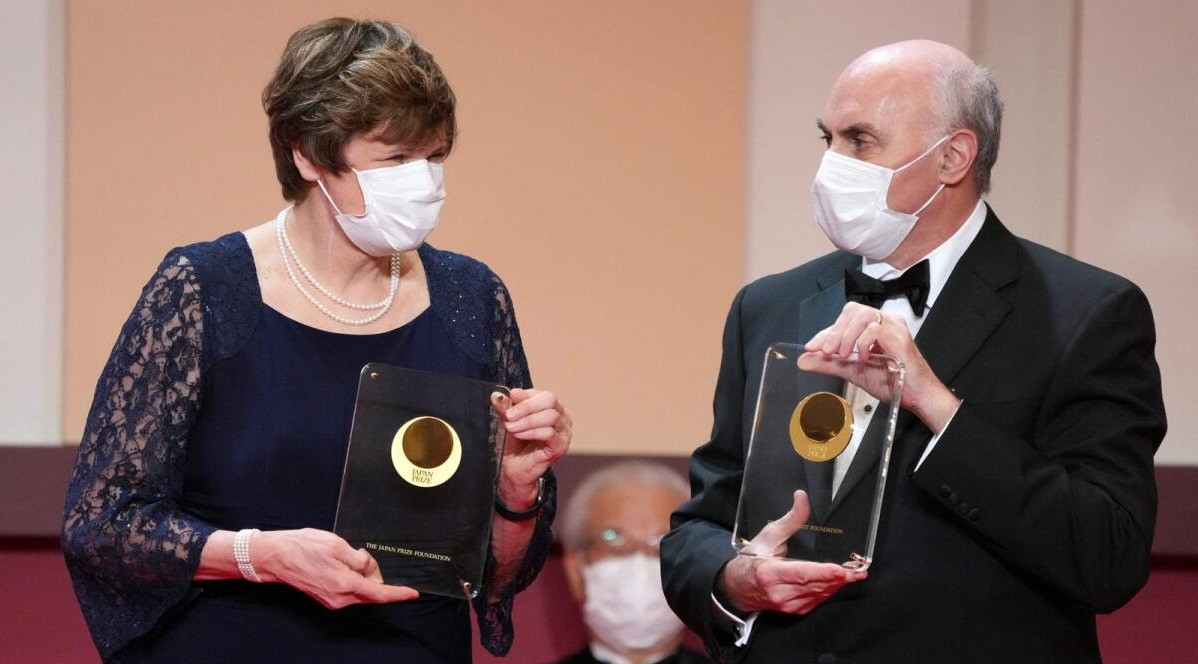As the Nobel Prize announcements for 2024 commence, attention is turning to potential groundbreaking contributions in cancer and cardiovascular research for the Nobel Prize in Medicine, set to be announced on Monday at 11:30 am (0930 GMT) in Stockholm.
Established in 1901, the Nobel Prizes aim to honor individuals who, in the words of founder Alfred Nobel, “have conferred the greatest benefit on humankind.” This year’s awards arrive during a time of global turmoil, including wars in the Middle East and Ukraine, and a climate on the verge of collapse, offering a hopeful glimpse of scientific progress amidst these challenges.
One strong contender for the Nobel in Medicine is American biologist Kevan Shokat, whose pioneering research identified a way to block the KRAS cancer gene. This gene is linked to about one-third of cancers, including difficult-to-treat lung, colon, and pancreatic cancers. Thanks to Shokat’s discovery, new treatment options are now under clinical trials.
Annika Ostman, a science reporter for Swedish public radio SR, noted, “These advancements could lead to new, promising treatments for previously hard-to-treat cancers.”
In the realm of cardiovascular research, geneticists Jonathan Cohen and Helen Hobbs are also seen as potential laureates. Their discovery of genes that regulate lipid metabolism, including cholesterol, has paved the way for innovative cholesterol-lowering drugs, improving cardiovascular health worldwide. David Pendlebury, head of Clarivate’s analytics group, highlighted their work as Nobel-worthy, with Hobbs having already earned the prestigious Breakthrough Prize in Life Sciences in 2016.
Other notable candidates include a trio of neuroscientists—Ann Graybiel (US), Okihide Hikosaka (Japan), and Wolfram Schultz (Germany)—for their research into the brain’s basal ganglia, which plays a key role in motivation and reward-based behaviors.
Davor Solter and Azim Surani are also considered potential winners for their contributions to epigenetics, the study of how cells control gene activity without altering DNA.
Last year, the Nobel Prize in Medicine was awarded to Katalin Kariko and Drew Weissman for their revolutionary work on messenger RNA (mRNA) technology, which led to the development of COVID-19 vaccines.
Physics Prize Speculation
On Tuesday, the Nobel Prize in Physics will be announced, with Swiss physicist Christoph Gerber emerging as a frontrunner. Gerber’s contributions to the development of the atomic force microscope have revolutionized nanotechnology by enabling 3D imaging at an atomic scale, according to SR science reporter Camilla Widebeck.
Other contenders in physics include David Deutsch and Peter Shor for their groundbreaking work in quantum algorithms and quantum computing.
Potential Chemistry Laureates
For the Nobel Prize in Chemistry, to be revealed on Wednesday, American-Jordanian scientist Omar Yaghi has been highlighted for his development of metal-organic frameworks (MOFs), porous materials used in a variety of applications, including water absorption in desert environments and toxin decontamination.
Karl Deisseroth, a US psychiatrist and neurologist, has been frequently mentioned for his work in optogenetics, a technique using light to control cells, a potential game-changer in neuroscience.
Literature and Peace Prize Anticipation
The Nobel Prize in Literature, always highly anticipated, will be announced on Thursday. Chinese avant-garde writer Can Xue, often compared to Kafka for her experimental and dystopian storytelling, is seen as a strong contender. Other nominees include Australian novelist Gerald Murnane, British writer Salman Rushdie, and Kenyan author Ngugi wa Thiong’o.
As for the Nobel Peace Prize, announced on Friday, predictions are more difficult given the numerous global crises. Possible candidates include the UN agency for Palestinian refugees (UNRWA), Afghan women’s rights activist Mahbouba Seraj, and the International Court of Justice. Additionally, the Campaign to Stop Killer Robots, a movement against autonomous weapons systems, has been mentioned as a potential recipient.
Nobel Economics Prize
The Nobel season concludes with the Economics Prize on October 14. This year’s contenders include researchers focused on child development economics, the integration of nature into economic models, and the effects of corruption on economic growth.
With significant advancements in medicine, physics, chemistry, and beyond, the 2024 Nobel Prizes aim to spotlight the transformative power of science and the humanities in improving global society.




